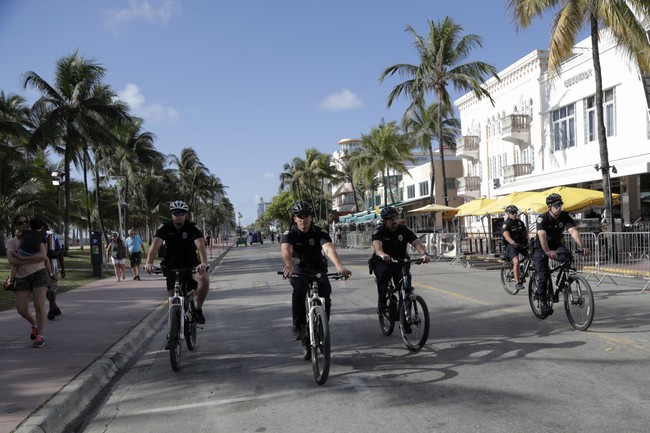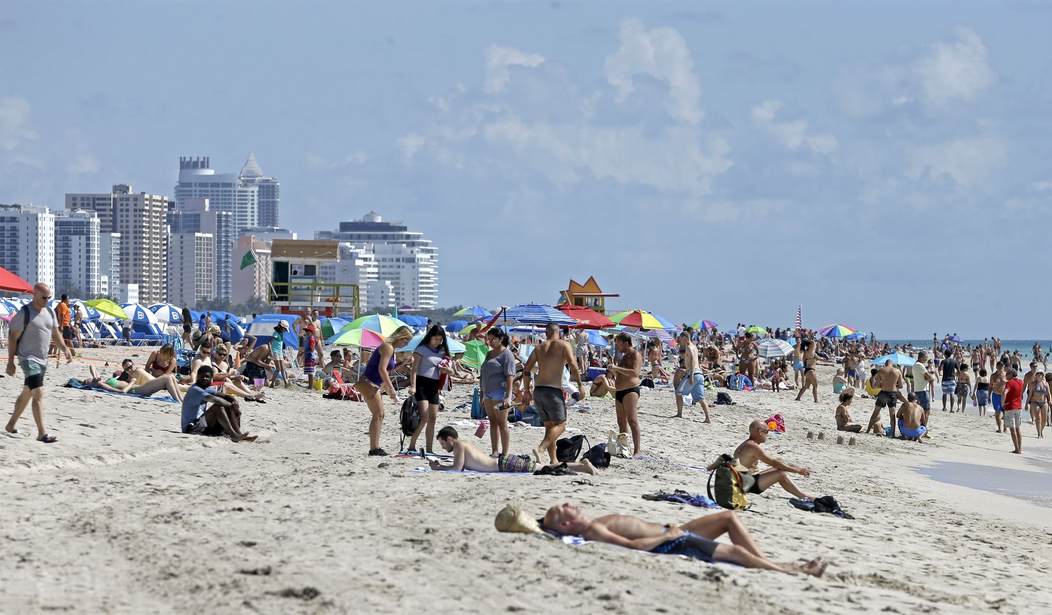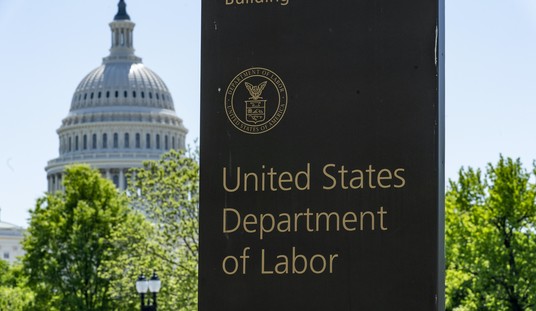Florida’s fever-dream periodical, the Miami Herald, has a remarkable piece freshly out covering measures to control beach crowds in the name of public safety. Granted, I will allow that this is an op-ed and, therefore, slightly unfair to frame it as the hot take from the paper entire, but it comes from a staff writer, and this level of emotional fervor falls right in line with that paper’s slanted hot takes, so it remains rather fair in nature.
What I am looking over is an editorial by Fabiola Santiago who looks into the matter of the city of Miami Beach trying to bring a level of control to the upcoming festivities/mayhem that take place annually on South Beach. Over the years, the location has become literally overrun with revelers, and there has been no shortage of incidents and dangerous activity, including a shooting death not long ago. As a result, the city authorities are looking at instituting measures to cull the crowd sizes.
There is one decision made that Ms. Santiago has deemed to be racist.
In its all-out effort to shed spring break crowds that are largely Black and Latino, the city of Miami Beach, under new leadership, has gone too far this year. No matter how hip the “breaking up with spring break” campaign tries to be, the optics of cracking down on everyone to punish the unlawful acts of troublemakers are awful.
What is it that has this columnist so incensed and declaring racism to be in play? The idea is to shut down the parking garages in the beach locations. If this sounds like a bit more than a reach, you are correct, but it did nothing to stem her inflamed writing.
White city leaders and police forget that by closing public garages in South Beach, allegedly as a tactic to stem violence, will have the result of shutting out people of color, so evoking the ugly racial history of acts to discourage Blacks from using Florida beaches.
Not for our readers, but for Ms. Santiago, I need to point out a detail she glosses over – she writes, correctly, that these are “public parking garages” being closed. They are not barring blacks from parking but everyone who is not a resident or a hotel-secured tourist in the area. In other words, whites are also being shut out in identical fashion.
Making Fabiola’s outrage all the more bizarre are the measures the city is taking, which are more intrusive and possibly authoritarian, that she stipulates to be good ideas. Just try to square the pretzel logic of this passage.
Setting up DUI checkpoints to keep people from drinking and driving is valid. Maintaining a strong police presence, as is done during other large-scale events — valid. Placing a curfew and limiting drinking hours, after shooting and violence break out — valid. But pricing out parking or closing public garages during two weekends that attract Black and brown people is discriminatory.
She believes that the coming vacationing weeks are reserved for one race, and the ability to park a car is being reserved for another. Yes, over the years, South Beach has attracted a largely black throng of beachgoers in the spring, but the steps being taken are not made based on race but on past issues and problems, affecting the attendees as much as the local residents.

Then Ms. Santiago commits one of my favorite moves witnessed in the outrage-activist media: She manages to completely invalidate her own point. Fabiola goes on to “prove” her charge of racism at play by bringing up my local shoreline, Fort Lauderdale Beach.
It’s not how white college students were treated for their debauchery. For decades, Fort Lauderdale was the spring break capital of unruly, drunk and high white teenagers who jumped off balconies, trashed hotel rooms, wore string bikinis and minuscule Speedo swimwear.
Her use of “was” is key, as she goes on to explain that city authorities back in the 1980s addressed the growing tide of people who used to hit Fort Lauderdale in March. I recall those years, as I was in high school and drawn like a moth to the heat taking place on our beaches. The mass of humanity was such you could not even see the sand. At the peak year, they walled off one lane of A1A to contain the crowds spilling over onto Beachfront Avenue. Then, the city began instituting strict law enforcement on public consumption, it raised the drinking age, and took other measures that chased away the college crowds to other tropical destinations.
In other words — it is EXACTLY how the white college students were treated. Santiago details all of this: “Eventually, whites moved the party,” she states. So when Fort Lauderdale killed off the party for whites, it was not racist, but when the city of Miami takes very similar steps to curtail unruly numbers of people, it is racist. You can only arrive at this conclusion if you feel Spring Break is reserved only for blacks and parking is a white privilege, something bestowed by the white city leaders.
But I have the solution to assuage Fabiola’s misgivings, and it harkens back to those white college party mavens who sought out other locales for their bacchanalia. These black Spring Breakers need only find a new destination, preferably out of state. After all, it would be for their own safety. Recall the NAACP issued a travel ban for Florida, due to perceived hostilities in this state. Partying in what we are told is the racist city of Miami Beach should be the last thing they want to do.















Join the conversation as a VIP Member